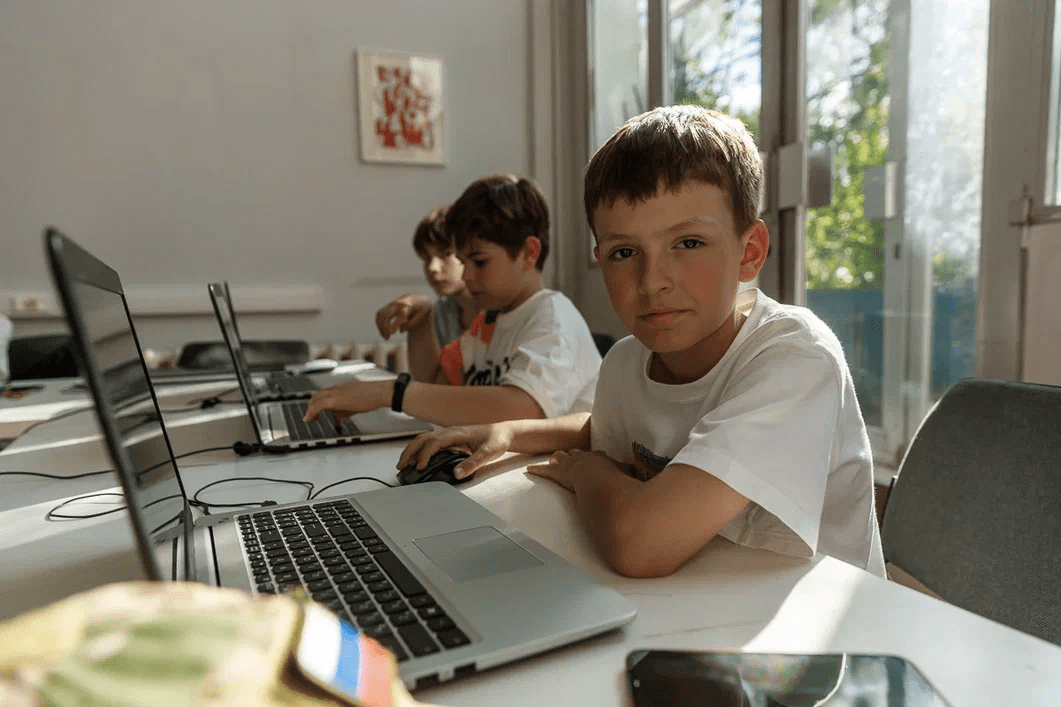All parents undoubtedly want their child to be well-rounded, easily adapt to adult life, and succeed in all areas. How can you help him achieve this? Your task is to give him the right education.

You know there are popular memes on social media that say, "School did not teach me to be an adult," i.e., to pay bills, make decisions, and communicate with other people. Unfortunately, there is some truth to this joke, because school teaches mostly hard skills - the laws of physics, the rules of grammar, etc. To prevent your child from getting into a situation where he or she is not ready for an independent life, it is important to pay attention to the development of soft skills.
Hard and soft skills
Hard skills are "hard" skills that a student needs to get straight A's and win at the Olympics, and that an adult needs to perform job tasks. For a school kid, it's the ability to solve logarithms or genetics problems, for a programmer - to write code in Java, and for a copywriter - to write sales copy.
Soft skills are "soft" skills, they are not tied to a profession or a specific field of activity. They cannot be learned like the laws of physics, it is important to develop them constantly from an early age. Researchers from Harvard, Stanford and Carnegie Endowment have shown that a person's professional success is determined 85% by flexible skills and only 15% by hard skills. Find out now which skills are worth developing and, more importantly, how to do it.
What skills you should develop and how you can do it
Communication skills

The ability to communicate is one of the most important soft skills in any profession, in any job. In communicating with their peers, children learn to interact as a team, to express their opinions, to agree and to find a compromise. Different sections and circles will help him find friends he is interested in and can open up to. It is also important for parents to communicate more with their child about different topics, to discuss and learn his opinion, and they should start doing this at preschool age.
CODDY offers a course that helps even the shyest child learn to speak up, speak out and not be afraid of anything. Here we learn how to resolve conflicts, deal with emotions in speech and instill confidence in the audience.
Communication course: "Master of Communication"
Leadership qualities
Of course, not everyone has an aptitude for leadership, but the ability to take responsibility, bring people together for a common cause, and assert oneself can certainly be developed by anyone.
CODDY offers a program specifically designed to develop leadership skills. In the course, you will learn how to express yourself, build communication, lead a debate, and manage your audience's attention.
Read more about the course: "Public Speaking".
Creative and logical thinking
Preschool children are not yet pressed into patterns, so their creativity can be easily developed. Let their imagination run wild: draw a fairy tale world, make up incredible stories, and think up play scenarios. Do not limit your baby's imagination.
Logical thinking is synonymous with creativity. Learn that everything in the world is impossible. Logical thinking helps a school child not only to cope with learning tasks, but also with all the problems in his life. To develop logical thinking, offer your child to solve logic puzzles. There are many of them on the Internet, they are sometimes fun and interesting to solve.
Programming - a great way to develop logic and creativity. The programmer creates working elements from scratch, using the code, not only technical knowledge, but also logic. And constantly occurring errors (programming is not possible without bugs) force him to bring creativity and look for alternative solutions. In the age of technical progress and optimization of many processes, these skills are essential.
A selection of courses on the subject of programming
Computer literacy

Knowledge of information technology is one of the most important for modern man. IT has penetrated all areas of life, far beyond programming and other digital professions. Doctors, linguists, geologists: all use technology and need to know how it works.
In the course "Computer Literacy" the child learns how a PC is built, gets familiar with the basic programs, learns to work with information, images, calculations and presentations.
Course: "Computer Literacy"
Emotional intelligence
This is the ability to understand one's own feelings and emotions, to live through them, to show empathy, and to understand the feelings of others. Many adults suffer from a lack of these skills, which prevents them from building relationships with others. It is easiest to start working on emotional intelligence at a young age.
The ability to hold back negative emotions and accept defeat is just as important as the ability to express love, share joy, and support a friend.
Talk to your child about his and your feelings and analyze the behavior of characters in children's books and movies. Teach your child to empathize with others, notice when loved ones are sad or hurt, and support them.
Acting training not only helps build emotional intelligence, the ability to express emotions and show empathy, but also helps develop communication and creative skills.
Read more about the acting course
Where you can develop soft skills
- In the family. Give an example from your own experience. Continue to learn and acquire new knowledge, demonstrate the qualities you want to see in your child.
- Hobby groups and clubs. In addition to hard skills, classes help develop social skills - teamwork, leadership. At the school CODDY we focus on holistic development, we have separate courses aimed at developing soft skills such as "Public Speaking", flexible skills pay attention to the narrow profile programs such as "Game Development in Python". A selection of CODDY courses aimed at soft skills development
- Communicate with peers. Socialization is an important tool because in the process of communication children discover their own communication and leadership skills. Summer camps, profile circles help make friends and form a social circle.
- Help from professionals. If you see that your child is struggling, there is no shame in turning to a professional. A child psychologist can help you overcome your child's inhibitions and lack of communication, and a speech therapist can work on their language.





